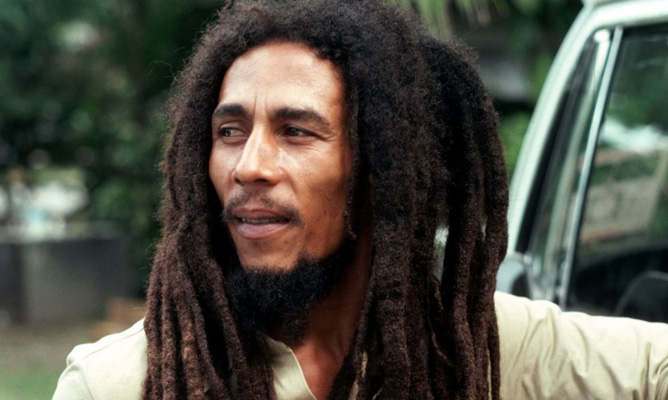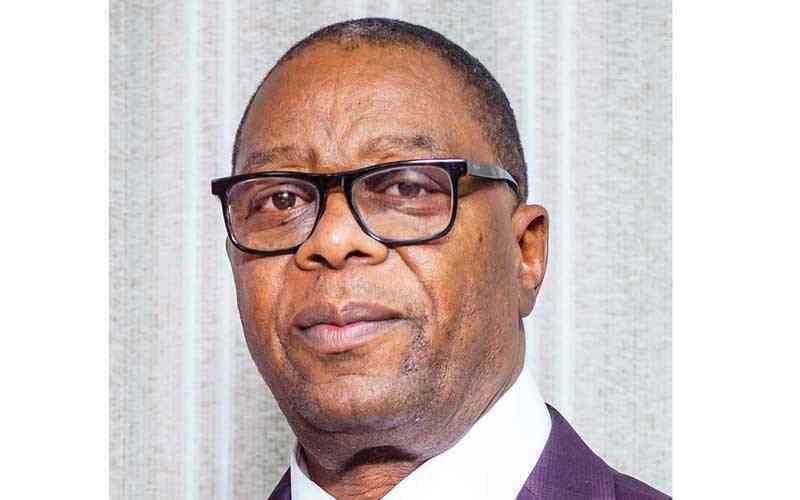
By Fred Zindi
This week marks the 41st anniversary since the death of reggae king, Bob Nesta Marley.
Although he died in May, 1981, young DJs born well after his death still play his music. The whole world still regards him as the king of reggae music.
Here in Zimbabwe, what makes Marley significant is the fact that, he with his band, The Wailers, at his own expense, came to celebrate our independence on April 17, 1980 when the British Union flag was brought down.
Marley was one of the most politically influential musicians of his time who also had a strong connection with Africa.
It was almost inevitable that a man so identified with the struggles against class and racial oppression should be invited to perform at the celebrations of the birth of a new nation, Zimbabwe.
At independence, in Zimbabwe, he stood tall among many political dignitaries who included Prince Charles, Indian prime minister, Indira Ghandi, British foreign secretary, Lord Carrington, Lord Christopher Soames, Nigerian President, Shehu Shagari, Kenneth Kaunda of Zambia, Australian prime minister, Malcolm Frazer, Sir Seretse Khama of Botswana, President Julius Nyerere of Tanzania and President Samora Machel of Mozambique and of course, Robert Mugabe the newly elected prime minister who gave his reconciliation speech.
Overwhelmed by the thousands of people who had come to grace the occasion on April 17, and had failed to get into Rufaro Stadium, Bob Marley and his band decided to give a free concert the next day. The stadium was filled to the brim.
- Chamisa under fire over US$120K donation
- Mavhunga puts DeMbare into Chibuku quarterfinals
- Pension funds bet on Cabora Bassa oilfields
- Councils defy govt fire tender directive
Keep Reading
The music oozing out of the giant imported P.A. system was electrifying as everyone shouted; “Viva Zimbabwe!” There were tears of pain-filled delight among the crowds. The crowd was introduced to his new reggae songs from his Survival album among which were the songs, Africa Unite, So Much Trouble and of course, Zimbabwe.
Without Bob Marley, reggae music would still be largely confined to a handful of singers, bands and sound systems dotted around the Caribbean and among West Indian communities in the cities of Britain and North America.
Through his devotion to the principles of Rastafari, Marley preached strength and social unity to oppressed peoples across the globe. His music crossed racial boundaries, providing black people with a new level of dignity.
Since his death, there has been an uneasy vacuum within the Jamaican music industry as ragga, dancehall and other forms of music tried in vain to match Marley’s music. It is a matter of time until another prophet, with the capacity to carry millions, takes up his role.
Every year in the month of May since 1984 (until 2019 before the Covid-19 pandemic struck), Zimbabwe has hosted some Bob Marley commemoration concerts.
Marley’s passion for music was born from two sources. The first was his mother, Cedella Booker, who sang gospel in the neighborhood Apostolic Church. The other was his close friend Joe Higgs who he would visit to discuss religion and listen to discs by the Impressions and the Ink Sports. Their falsetto harmonies were to become central to his music in its formative days.
Lacking educational qualifications, Marley was shunted off by Cedella to find employment as an apprentice welder. He struck up friendships with Desmond Dekker and Jimmy Cliff and they and Higgs convinced Marley that he should develop his singing and learn to play the guitar.
At 16, Bob Marley made his debut at Kingston’s very first recording studio, Federal, owned by producer Ken Khouri, a relation of the late Byron Lee of the Dragonnaires.
Issued in 1961, the song entitled Judge Not, co- written by Marley and Higgs was a plea for society not to hastily judge the ghetto rude boys for the way they dressed. He had set the scene for messages through music that was to make him famous.
His next recording (often credited as his first) was One Cup of Coffee, made the slightest impression upon Jamaican record buyers and he was forced to return to the welder’s yard.
Cedella had moved to Delaware, USA, where Marley joined her, securing a job at the Chrysler car factory. His experiences on the assembly line were immortalised on a song, Night Shift. To his horror, his promised quiet life was shattered when he received his military conscription papers. To avoid being drafted and shipped off to Vietnam, he returned to Jamaica.
Tosh and Wailer had failed at their respective solo ventures and with Marley back the threesome went to record with Chinese/Jamaican producer Leslie Kong who was fast establishing himself as the island’s top rock-steady producer.
What was to have been a one-off affair was extended after the public’s reaction to the seminal Soul Shakedown Party which shook Jamaica by its roots. However, Kong suffered from asthma and cancer and his deteriorating health sadly brought this creative combination to an abrupt end.
Garvey’s teachings on the subject of repatriation to Africa were beginning to filter through the group. Wailer rejected his previous lifestyle and the words of Garvey, brought him consciousness which he in turn brought into his music.
With the payment he received, Marley together with Tosh and Wailer, recorded Trenchtown Rock, Screw Face, Hypocrite and the melancholic Satisfy My Soul. It was a completely individual sound, a hybrid of rock-steady and reggae and they soon attracted the attention of Island Records supreme, Chris Blackwell.
Stories of why Blackwell signed the group vary. A fascination with Rastafari coupled to a strong belief that reggae could, if marketed correctly, become an international music force, seem the most likely reasons.
Blackwell financed the sophisticated Catch a Fire album, in 1973.
It sold well enough for Blackwell to be as good as his word and take Bob Marley and the Wailers under the Island Records wing.
The group went to Britain later that year as the rock chic darlings.
On the face of it, the Wailers had cracked the nut. By the end of that year, they had completed a second Island album, Burnin, and confirmed a second UK tour.
The album paled in comparison to the previous one, yet it did contain the classic I Shot the Sheriff that rock guitarist Eric Clapton made into a hit single for himself.
Suddenly the world was aware of the Rastaman.
But acrimony had set in within the group. Wailer refused to tour again and Tosh began to express unease about the deal with Island.
Neither was to perform as a Wailer again.
To fill the vacancy in the harmony section, Marley’s wife Rita, Judy Mowatt and Marcia Griffiths all professional singers were enlisted as ‘The 1-Threes’.
With American guitarist AI Anderson and Bernard ‘Touter’ Harvey, Marley went on to record the album that finally set the seal on his career.
With the album Natty Dread, their songs were taken to London that summer and at a memorable night at London’s Lyceum, the future of reggae was cast. A ‘Live’ album of that show spawned the single No Woman No Cry, awarding Marley his first major UK pop chart hit.
After the release of Rastaman Vibrations (1976) and the annual tours, Marley’s position as an international musician and statesman made him a target of warring gunmen in Jamaica.
In December of that year, at the height of pre-election political gang violence, seven armed men burst into his home at 56 Hope Road, Kingston. If his manager, Don Taylor, hadn’t flung himself in front of the singer, Marley would have sustained more serious injury than four bullet wounds in an arm. Rita was also injured in the incident.
The attack occurred on the eve of a concert he was due to appear organised by the then ruling PNP party led by Michael Manley. Despite his injuries, Marley performed at the concert although immediately after, for his safety, he left Jamaica for an 18-month exile in Miami.
When he returned, it was one of the most moving spectacles ever witnessed on the island. In front of an estimated 20,000 people at Kingston’s National Stadium; he brought together in a handshake Michael Manley and the ex-opposition leader who later became Premier Edward Seaga.
In all, Marley recorded 10 albums for Island Records, ranging in content, lyrically and musically, from the bold political sloganeering of Exodus, Kaya, Jammin, Waiting In Vain, Survival to the powerful Uprising, his last recorded album that included the epic Redemption Song.
Towards the close of an exhausting world tour (1980) Marley collapsed after a concert at New York’s Madison Square Gardens and was taken to Sloane Kettering Hospital where cancer was diagnosed.
Some months later it became known that he had a cancerous toe removed while in Miami three years before. The extent of his illness could be gauged by his decision to admit himself to the Josef Issels Clinic, Bavaria.
Upon completion of the treatment he flew to Miami, to visit Cedella, en route to Jamaica. His discomfort must have been chronic and on May 8 he admitted himself to the Cedars Lebanon Hospital where he died three days later on May 11.
He was provided with a state funeral in Jamaica. Bob Marley had been the biggest single foreign currency earner in Jamaica leaving an estimated US$46 million behind.
Since his death, countless tribute records have been released; none finer than Bunny Wailer’s Tribute collection of Marley compositions.
Films of his life have been made and several books written. The respect for the iconic Bob Marley still lingers on up to this day with commemoration concerts held every year in May. This is why we say Bob continues to rule from the grave.
- Feedback: frezindi@gmail.com










